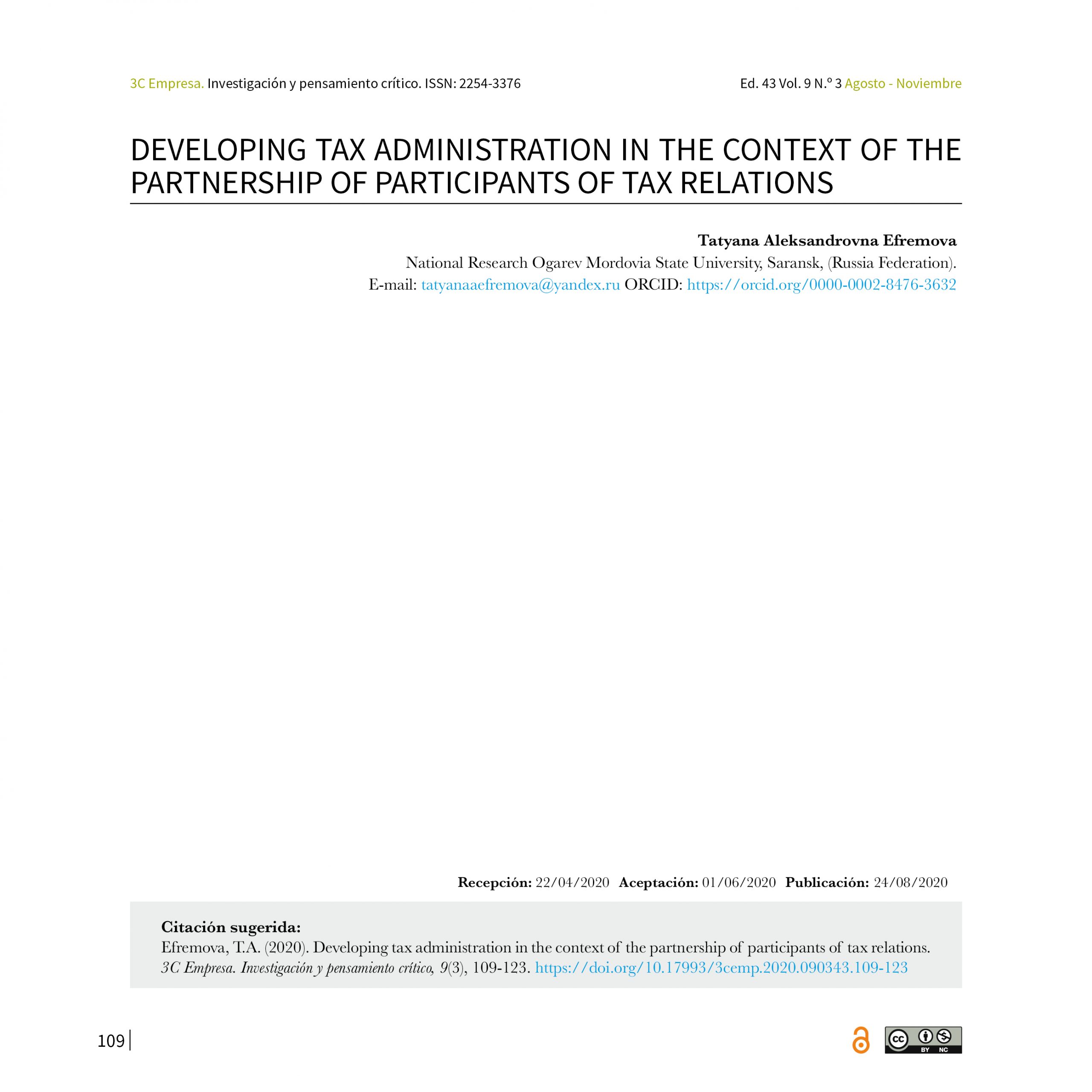The aim of the study is to elaborate methodological and practical recommendations to develop tax
administration when forming tax relations based on the partnership, trust and mutual responsibility of
tax authorities and taxpayers. The author uses general and special methods of scientific knowledge (the
abstract-logical method, methods of analysis and synthesis, comparison and generalization, etc.) as a
methodological base, which makes it possible to justify the need to change the form of the cooperation
between the state (represented by tax authorities) and taxpayers, to assess the satisfaction of physical and
legal entities with the quality of service in tax offices, and to elaborate a set of recommendations aimed
at harmonizing the interests of the participants of tax relations. Results indicate that the transition to a
socio-technological model for developing the tax service of Russia implies a refusal to serve taxpayers
according to the formula “Long. Difficult. Inconvenient” in favor of the formula “Quick. Easy.
Convenient. Professional”. At the same time, modern information technologies and tax administration
management systems are becoming a tool that ensures the development of the relationship between tax
authorities and citizens and businesses. Their application allows the formation of informational and
methodological support for taxpayers, which stimulates the voluntary fulfillment of tax obligations, and
improves the quality of services offered to them by tax authorities. It can be concluded that forming tax
relations based on the partnership of their participants helps to achieve positive results in developing tax
administration.



